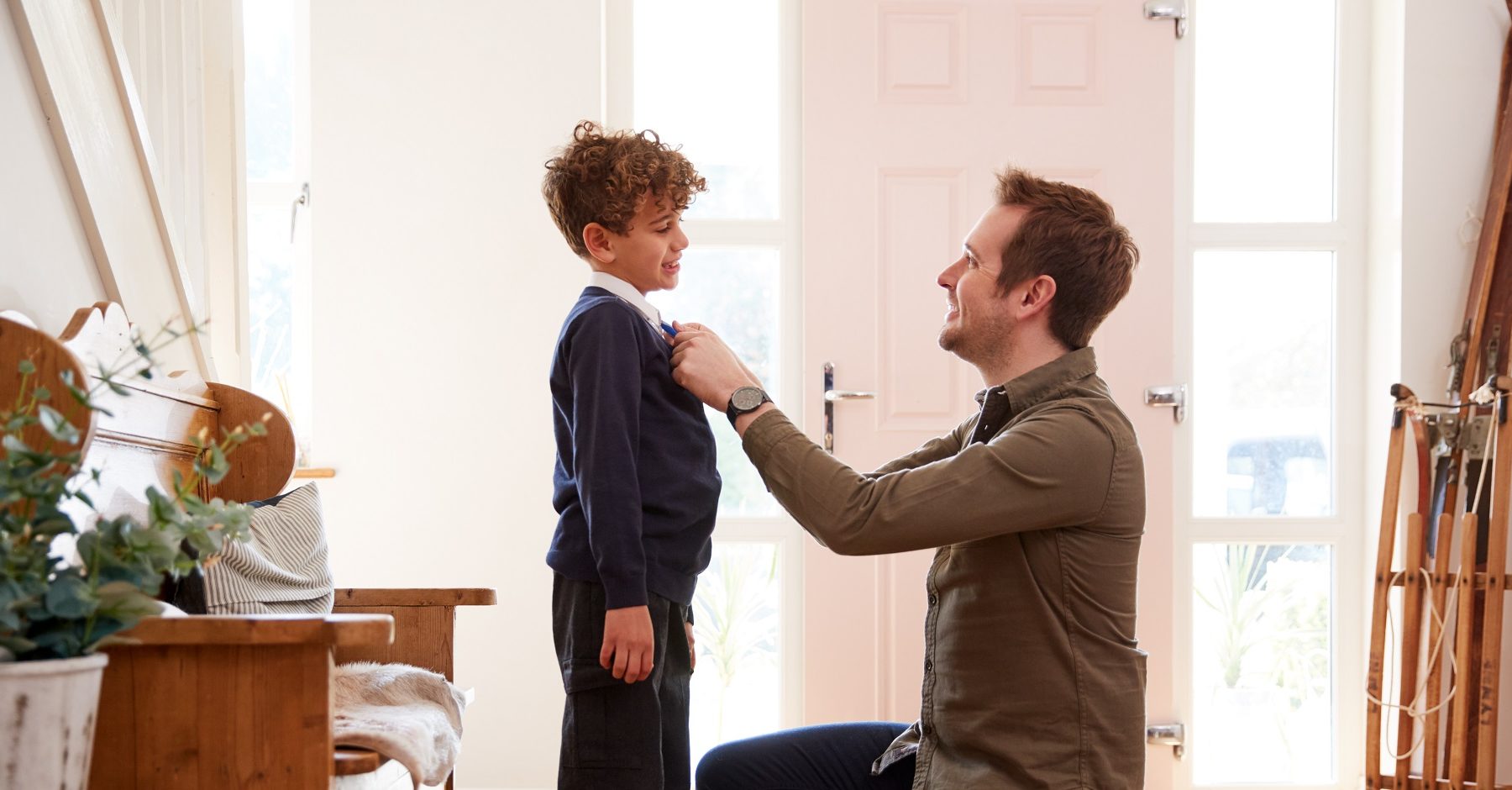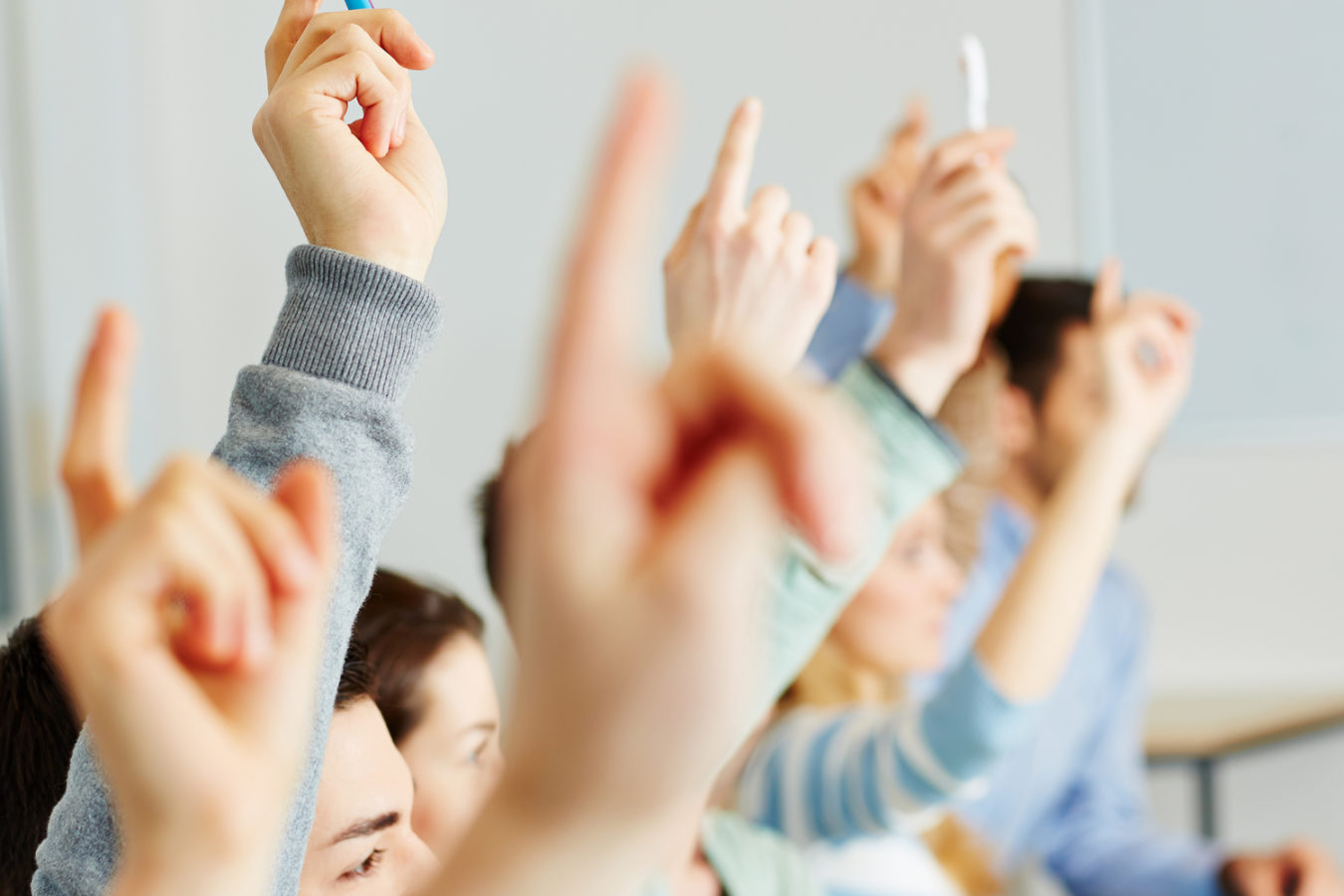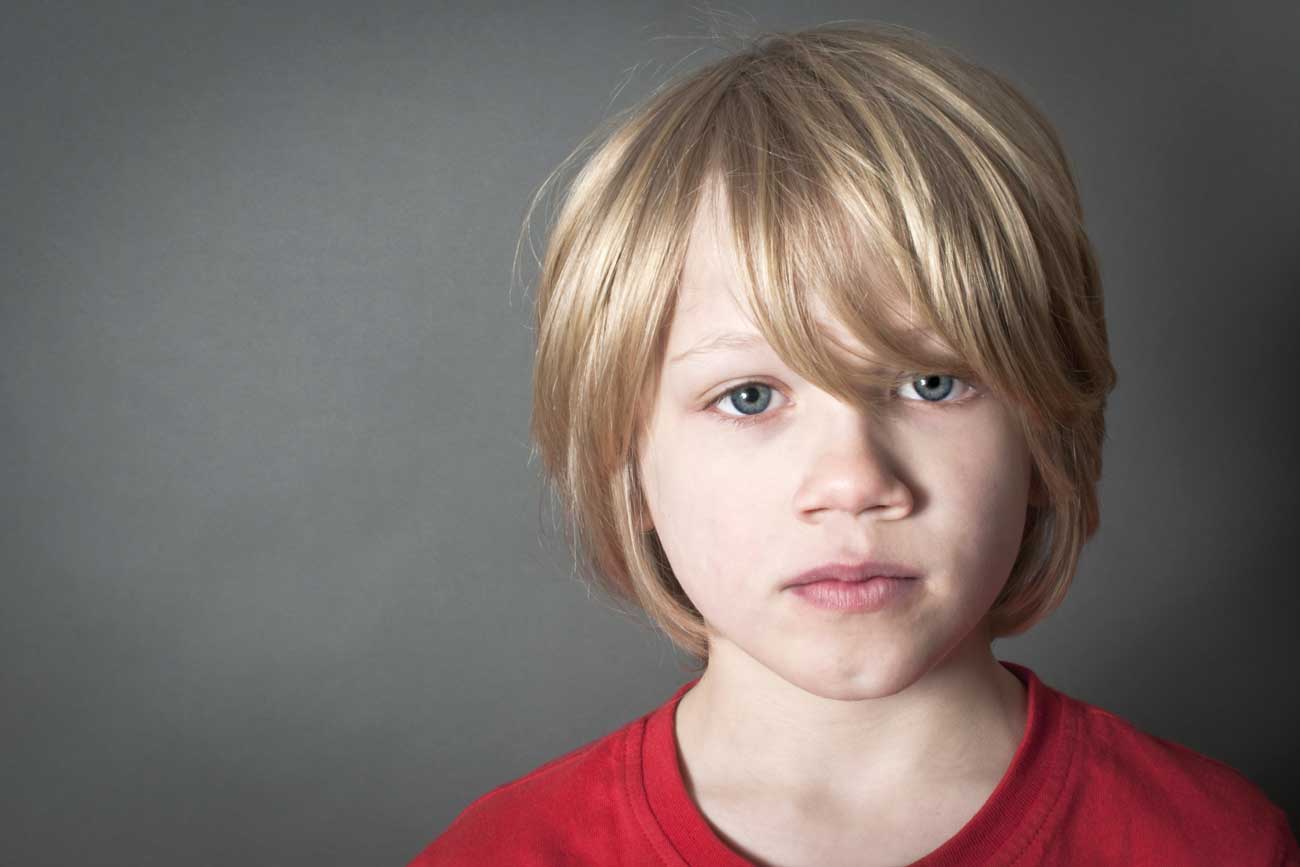
Some kids are finding the return to the classroom challenging, while for older kids, it's an opportunity for change. Parenting expert Michael Grose talks with Peter Hanlon about how families can navigate this next stage.
Just as no-one has been immune to the threat of coronavirus, nor our lives untouched by its presence, so does ‘the new normal’ lump us together. We can make informed guesses, but we don’t really know how life will look as the calendar pages continue to turn.
For quieter, introverted children – especially those who experience anxiety – three months of learning from home might well have been the most comfortable time of their school lives.
Michael Grose, one of Australia’s leading parenting educators, notes that returning to the classroom and school environment could feel like being made to attend an endless conference where you’re expected to be ‘up’ from first bell to last.
‘For some kids it will definitely be a little bit of a struggle readjusting, because they’ve felt pretty comfortable,’ Michael says. ‘Home isolation has been a relief for some kids, because not only has school stopped, but all the extra-curricular activity – such as organised sport – has stopped too.
‘As adults we don’t just flick the switch now and go, ‘Right, back into it – pub Monday night, tennis Tuesday night’, etcetera. Kids will need time too, and support. Take it slowly, don’t put pressure on their learning. They have to reconnect – with other kids and teachers first, and then with their learning.’
Here are some ideas to help with the adjustment:
Acknowledge anxiety
Michael Grose and wellbeing expert Dr Jodi Richardson last year released Anxious Kids, a handbook on how children can turn anxiety into resilience.
Key among its parenting lessons is to accept that such feelings are real – even if you don’t fully understand why they exist – and face them head-on.
‘Don’t protect them from it,’ Michael says. ‘Talk to them – “I can see you’re nervous about going back to school, I can understand that, I would be too, I get it.”
‘Research tells us that kids like to know that the prime adults in their lives – parents, teachers – get that they’re nervous. They don’t want that, “Come on, get over it” approach. You don’t have to sit in a circle holding hands, but acknowledge that it’s okay to feel that way.’
Bringing our own experience to the table can be powerful, especially if it means telling our children that we’ve been unsettled at times of late too. ‘Kids like that – “she gets that, she understands me”. It’s empathy – understanding how you might feel.’
Reframe who you are
Particularly for adolescents, returning to school after an unprecedented hiatus brings an opportunity for self-examination that would not have been possible if the pandemic hadn’t sent us ducking for cover.
Michael likens its potential to the norm of family life in centuries past, when teenagers would leave home to discover their place in the world. Today, it presents an opportunity to redefine what success looks like, and what works best for every child.
‘I think for many kids this is a stage where it’s an opportunity to get a bit of self-knowledge,’ he says. ‘“What sort of person am I? What’s my best learning style? Gee, I got through this, maybe I don’t always have to be doing sport …”’
‘I’d frame it that way – it’s a good chance in the middle of your school life to get to know yourself better, what your strengths are, your weaknesses. These are good conversations that parents can have with kids, particularly in adolescence.’
Don't rush
Michael says for many returning to school will be like coming back from summer holidays, with all the attendant nervousness and fears amplified. Teachers he has spoken to recently have urged a measured approach, a settling-in period not unlike that routinely experienced by children stepping up from primary to secondary school.
‘Teachers will often spend time in Year 7 just getting to know their students, making them feel comfortable. It’ll be a little bit like that. Most kids will look forward to going back for the social connection, but it will be different.
‘I’ve spoken to teachers, they’ll be focusing on things like, “What did you do during the break? What did you learn?” Rather than getting bang, straight into learning.’
Build on connection
For many parents, the ‘new normal’ will include a newfound admiration for the work teachers do. Having added home-teaching to their parenting duties, Michael says they should give themselves a pat on the back too – and work to capitalise on bonds that have hopefully been enhanced in isolation.
‘Something I’ve picked up, looking at a new normal, there’s been opportunity for deeper connection. Parents I’ve spoken to, particularly Dads, have said, “We’ve had some really good chats.”
‘It’d be good if we could continue that as well. Parents and kids, keep talking to each other, keep those connections going.’
Like this post? Please share using the buttons on this page.
About Michael Grose
Michael Grose, founder of Parenting Ideas, is one of Australia’s leading parenting educators. He’s the author of 12 books for parents, including Spoonfed Generation, the best-selling Why First Borns Rule the World and Last Borns Want to Change It, and his latest release, Anxious Kids.
Subscribe to The Parents Website

